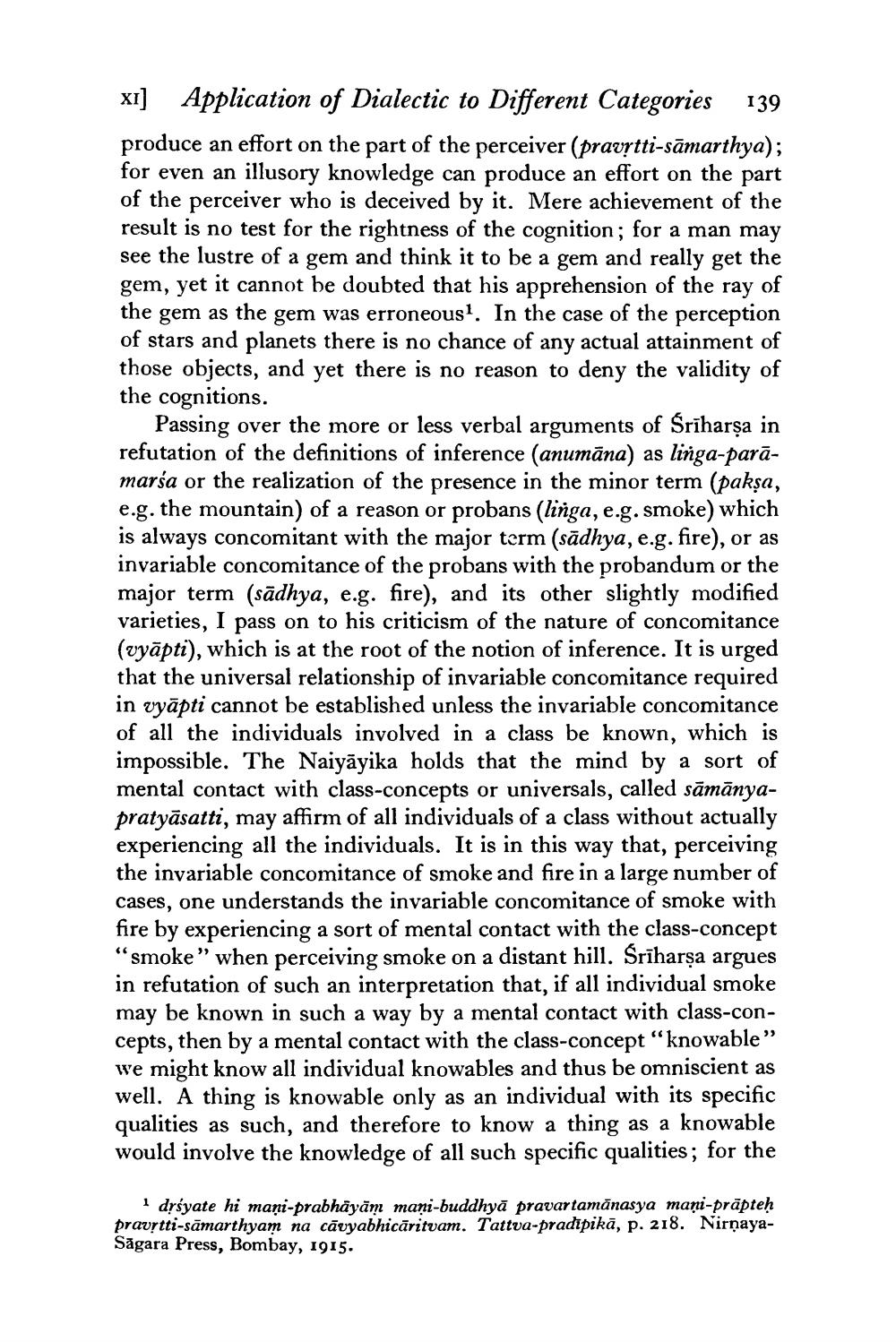________________
XI] Application of Dialectic to Different Categories 139 produce an effort on the part of the perceiver (pravṛtti-samarthya); for even an illusory knowledge can produce an effort on the part of the perceiver who is deceived by it. Mere achievement of the result is no test for the rightness of the cognition; for a man may see the lustre of a gem and think it to be a gem and really get the gem, yet it cannot be doubted that his apprehension of the ray of the gem as the gem was erroneous1. In the case of the perception of stars and planets there is no chance of any actual attainment of those objects, and yet there is no reason to deny the validity of the cognitions.
Passing over the more or less verbal arguments of Śrīharṣa in refutation of the definitions of inference (anumana) as linga-paramarsa or the realization of the presence in the minor term (pakṣa, e.g. the mountain) of a reason or probans (linga, e.g. smoke) which is always concomitant with the major term (sadhya, e.g. fire), or as invariable concomitance of the probans with the probandum or the major term (sādhya, e.g. fire), and its other slightly modified varieties, I pass on to his criticism of the nature of concomitance (vyāpti), which is at the root of the notion of inference. It is urged that the universal relationship of invariable concomitance required in vyāpti cannot be established unless the invariable concomitance of all the individuals involved in a class be known, which is impossible. The Naiyayika holds that the mind by a sort of mental contact with class-concepts or universals, called sāmānyapratyāsatti, may affirm of all individuals of a class without actually experiencing all the individuals. It is in this way that, perceiving the invariable concomitance of smoke and fire in a large number of cases, one understands the invariable concomitance of smoke with fire by experiencing a sort of mental contact with the class-concept "smoke" when perceiving smoke on a distant hill. Śrīharṣa argues in refutation of such an interpretation that, if all individual smoke may be known in such a way by a mental contact with class-concepts, then by a mental contact with the class-concept "knowable" we might know all individual knowables and thus be omniscient as well. A thing is knowable only as an individual with its specific qualities as such, and therefore to know a thing as a knowable would involve the knowledge of all such specific qualities; for the
1 driyate hi mani-prabhāyām mani-buddhya pravartamānasya mani-präpteḥ pravṛtti-samarthyam na cavyabhicāritvam. Tattva-pradīpikā, p. 218. NirnayaSagara Press, Bombay, 1915.




